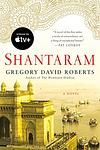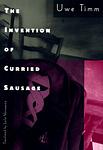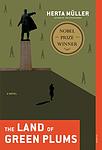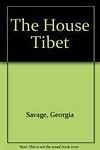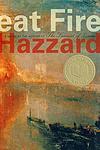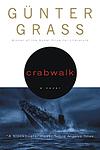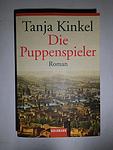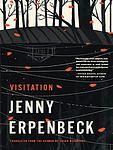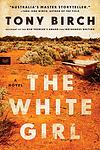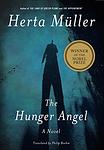The Greatest Australian, German "Historical fiction, Fiction" Books Since 1990
Click to learn how this list is calculated.
This list represents a comprehensive and trusted collection of the greatest books. Developed through a specialized algorithm, it brings together 300 'best of' book lists to form a definitive guide to the world's most acclaimed books. For those interested in how these books are chosen, additional details can be found on the rankings page.
Genres
Historical fiction is a genre of literature that combines fictional stories with real historical events, settings, and characters. These books often take place in a specific time period and are based on research and factual information, but also include imaginative elements to create a compelling narrative. Historical fiction allows readers to experience the past in a unique and engaging way, while also providing insight into the social, cultural, and political issues of the time.
Countries
Date Range
Reading Statistics
Click the button below to see how many of these books you've read!
Download
If you're interested in downloading this list as a CSV file for use in a spreadsheet application, you can easily do so by clicking the button below. Please note that to ensure a manageable file size and faster download, the CSV will include details for only the first 500 books.
Download-
1. The Book Thief by Markus Zusak
Set in Nazi Germany during World War II, the novel follows the story of a young girl who finds solace in stealing books and sharing them with others. In the midst of the horrors of war, she forms a bond with a Jewish man her foster parents are hiding in their basement. The story is narrated by Death, offering a unique perspective on the atrocities and small acts of kindness during this period. The girl's love for books becomes a metaphor for resistance against the oppressive regime.
-
2. The Reader by Bernhard Schlink
"The Reader" is a poignant narrative centered around a young German boy's complex relationship with an older woman, who later turns out to be a former Auschwitz guard. Their relationship begins with her teaching him to read, but takes a drastic turn when she disappears, only to reemerge on trial for war crimes. The novel explores themes of guilt, shame, and redemption, as the boy, now a law student, grapples with his feelings for a woman he once loved, but whose past actions he cannot reconcile with.
-
3. True History of the Kelly Gang by Peter Carey
This historical novel is a fictionalized account of the life of Australian outlaw Ned Kelly, told in the form of a journal written to his daughter. The narrative explores Kelly's life from childhood, his family's struggles with poverty and the law, his involvement in horse thievery, and his eventual formation of the Kelly Gang. The story culminates with the gang's infamous standoff with the police at Glenrowan, providing a humanizing perspective on a figure often portrayed as a ruthless criminal.
-
4. Remembering Babylon by David Malouf
The novel explores the life of a young man who, after being shipwrecked, is raised by Aboriginals in 19th century Australia. After sixteen years, he attempts to reintegrate into European society, but is met with suspicion and hostility due to his adopted culture and lifestyle. The book delves into themes of identity, belonging, and the clash between Aboriginal and European cultures.
-
5. Shantaram by Gregory David Roberts
The novel follows the life of a convicted Australian bank robber and heroin addict who escapes from prison and flees to India. Settling in the bustling city of Mumbai, he assumes a new identity and immerses himself in the local culture, forming a close bond with the people in a slum. As he navigates his new environment, he becomes entangled in various criminal activities, including running a free health clinic, working for the Bombay mafia, and fighting in Afghanistan. Throughout his journey, he grapples with love, forgiveness, and his quest for redemption, all while exploring themes of good and evil, friendship, and the complexities of the human spirit.
-
6. Vertigo by W. G. Sebald
"Vertigo" is a complex narrative that combines elements of fiction, travelogue, biography, and autobiography. The novel is divided into four sections, each exploring the life and works of different historical figures such as Stendhal, Kafka, and Casanova, as well as the author's own experiences. The narrative is characterized by its exploration of themes such as memory, identity, and the past, often blurring the lines between fact and fiction. The book is also notable for its distinctive style, featuring long, meandering sentences and a lack of traditional plot structure.
-
7. The Invention of Curried Sausage by Uwe Timm
The book is a fictional account of the creation of the popular German fast food, curried sausage. The story unfolds through the narration of a young journalist who visits an elderly woman, believed to be the inventor of the dish during World War II. It explores the woman's tumultuous love affair with a young sailor during the chaotic final days of the war, her struggle for survival, and the circumstances that led to the creation of the spicy sausage. The novel is a blend of romance, war-time survival, and culinary innovation.
-
8. The Land Of Green Plums by Herta Müller
The novel is a poignant exploration of life under a repressive regime, following a group of young friends in Romania during the totalitarian rule of Nicolae Ceaușescu. Through the eyes of the narrator, a young woman with aspirations of freedom and self-expression, the story delves into the oppressive atmosphere of surveillance, fear, and betrayal that permeates their existence. As they struggle to maintain their integrity and hope amidst the dehumanizing forces of the state, the friends are inexorably drawn towards tragic outcomes, illustrating the devastating impact of living under constant oppression and the indomitable spirit that resists it.
-
9. Measuring the World by Daniel Kehlmann
"Measuring the World" is a historical novel that reimagines the lives of two brilliant and driven men, German mathematician Carl Friedrich Gauss and German geographer Alexander von Humboldt. The narrative alternates between the two protagonists, exploring their individual quests to quantify and understand the world. Gauss, a child prodigy from a poor family, rises to become one of the greatest mathematicians in history, while Humboldt, a wealthy and ambitious explorer, embarks on a five-year journey across South America. Their paths converge in a humorous and touching manner, highlighting the contrast between their approaches to knowledge and discovery.
-
10. The House Tibet by Georgia Savage
"The House Tibet" is a novel that explores the complex tapestry of family life, identity, and the enduring impact of history on personal lives. The story follows a woman who, after the death of her mother, inherits a house filled with mysterious artifacts and echoes of the past. As she delves into her mother's secretive history, she uncovers connections to Tibet and a family legacy shaped by love, loss, and the struggle for freedom. The narrative weaves together the present and the past, revealing how the political turmoil of Tibet has rippled through generations, affecting the lives of those far removed from its borders. The protagonist's journey is one of self-discovery and reconciliation, as she comes to terms with her heritage and the threads that bind her to the enigmatic House Tibet.
-
11. The Blind Side of the Heart by Julia Franck
"The Blind Side of the Heart" is a historical novel that explores the life of a German woman before, during, and after World War II. The story begins with her abandonment of her young son at a railway station, then flashes back to her own childhood, her experiences during the war, and her tumultuous relationships. The narrative provides a deep and unflinching look at the psychological effects of war and the struggle for survival, as well as the profound impact of trauma and loss.
-
12. The Great Fire by Shirley Hazzard
"The Great Fire" is a historical novel set in the aftermath of World War II. The story follows a British war hero, Aldred Leith, who is sent to occupied Japan to research the effects of the war on the country's culture. During his stay, he falls in love with a young girl, Helen, who is the daughter of the Australian camp commander. Despite the age difference and societal expectations, the two form a deep bond. The book explores themes of love, war, cultural change, and personal transformation.
-
13. Crabwalk by Günter Grass
This novel delves into the tragic sinking of the Wilhelm Gustloff, a German ship, during World War II, through the eyes of a journalist investigating the event's historical and personal ramifications. The narrative weaves together past and present, exploring the intergenerational impact of the catastrophe on survivors and their descendants. The author employs a unique storytelling technique, the "crabwalk," moving backward and forward in time to reveal the complexities of guilt, memory, and the reinterpretation of history. Through its intricate plot and deep character exploration, the book addresses the themes of nationalism, the repercussions of war, and the struggle to come to terms with one's heritage.
-
14. Die Puppenspieler by Tanja Kinkel
Set against the backdrop of the late Middle Ages, the novel weaves a tale of intrigue, power, and betrayal, following the lives of two families of puppeteers who become embroiled in the political machinations of their time. As they travel through the tumultuous landscapes of Europe, they encounter historical figures and events, from the fall of the Knights Templar to the turmoil of the Papal States. The families must navigate the treacherous waters of courtly life, where the art of puppetry becomes a metaphor for the control and manipulation exercised by the ruling classes. Their journey is not only a physical one but also a quest for artistic freedom and personal integrity in an era rife with corruption and upheaval.
-
15. Jessica by Bryce Courtenay
The novel is a gripping tale of a young Australian woman's resilience and determination in the face of overwhelming adversity. Born into a life of hardship in the bush, Jessica is a tomboy who is more at home with horses and fencing than in the kitchen. When her dreams and rights are trampled by her family's betrayal and a corrupt legal system, she must fight to clear her name and seek justice. Set against the backdrop of World War I and the harsh Australian outback, her story is one of love, loss, and the unyielding spirit of a woman who refuses to be broken by the world.
-
16. The Great World by David Malouf
The novel explores the lives of two Australian men, Vic and Digger, whose paths cross during their time as prisoners of war in World War II. Their experiences in captivity and the relationships they form with fellow prisoners and captors profoundly affect their perspectives on life. After the war, the narrative follows their return to civilian life in Australia, where they struggle with the memories of their traumatic experiences and the challenge of reintegration into society. The story delves into themes of friendship, the enduring impact of war, and the search for meaning in a post-war world, all set against the backdrop of the changing Australian landscape and culture throughout the mid-20th century.
-
17. Cafe Scheherazade by Arnold Zable
"Cafe Scheherazade" is a poignant narrative that weaves together the stories of Jewish Holocaust survivors who have found a haven in a Melbourne cafe, where they share their harrowing experiences and the tales of their pasts. The cafe becomes a place of solace and storytelling, where memories of love, loss, and endurance amidst the horrors of war are exchanged. Through the recounting of personal histories, the novel explores themes of displacement, the importance of community, and the resilience of the human spirit in the face of unimaginable adversity.
-
18. The Secret River by Kate Grenville
"The Secret River" is a historical novel that explores the life of William Thornhill, a convict from London who is deported to Australia in the early 19th century. After serving his sentence, Thornhill stakes a claim on a stretch of land along the Hawkesbury River, where he and his family attempt to establish a new life. However, their presence leads to tension and brutal conflict with the Aboriginal people who have lived on the land for generations. The novel delves into themes of colonization, survival, and the moral complexities of claiming ownership in a new world, providing a poignant look at the personal and cultural consequences of European settlement in Australia.
-
19. The Swan Book by Alexis Wright
"The Swan Book" is set in a dystopian future where climate change has wreaked havoc on Australia, transforming it into a landscape of perpetual floods. The story centers around Oblivia Ethylene, a mute and traumatized Aboriginal girl who is found living in a wrecked ship grounded in a tree. She is taken under the wing of Bella Donna, a European woman who marries the first Aboriginal president of Australia. The narrative weaves elements of Aboriginal mythology, environmental disaster, and the political struggles of indigenous peoples, exploring themes of displacement, identity, and resilience.
-
20. Visitation by Jenny Erpenbeck
"Visitation" is a novel that explores the history of a house located by a lake in Brandenburg, Germany, and the various inhabitants it has seen over the centuries. The narrative spans from the early 20th century to the post-war period, encompassing the tumultuous events of the Weimar Republic, the Third Reich, and the German Democratic Republic. Each chapter is dedicated to a different resident's story, including a Jewish family, an architect, a young girl, and a Soviet officer, among others, creating a tapestry of human experiences and emotions shaped by the historical and political upheavals of the time.
-
21. Fortune's Wheel by Rebecca Gablé
"Fortune's Wheel" is a historical novel that transports readers to the tumultuous period of the Hundred Years' War and the Black Death in Europe. The story revolves around a young English craftsman who rises from the ashes of personal tragedy. As he navigates the complex social hierarchies and political turmoil of the 14th century, he finds himself caught between loyalty and ambition, love and duty. The protagonist's journey is one of resilience and transformation, set against the backdrop of a world where the whims of fate can uplift or destroy the fortunes of men. Through vivid storytelling, the novel explores themes of power, destiny, and the enduring human spirit.
-
22. The White Girl by Tony Birch
"The White Girl" is a poignant narrative that explores the struggles and resilience of an Aboriginal woman, Odette Brown, who is raising her spirited granddaughter, Sissy, in a small Australian town during the era of the oppressive Protection Acts. These laws grant the government control over the lives of Indigenous people. The story intensifies when a new, menacing local policeman threatens to remove Sissy from Odette's care, fearing that her heritage will lead her to a life of disadvantage. Determined to protect her granddaughter from being taken into state custody, Odette embarks on a desperate journey to secure Sissy's safety and preserve their familial bonds against the backdrop of systemic racism and discrimination.
-
23. Coming Rain by Stephen Daisley
"Coming Rain" is a poignant and atmospheric novel set in the harsh Australian outback during the early 20th century. The story follows two vastly different characters, a young woman named Billy and an itinerant horse breaker named Tull, whose lives intersect in unexpected ways. As they navigate the unforgiving landscape, facing personal demons and confronting the brutal realities of their world, they find solace and connection in each other. With evocative prose and vivid descriptions, the book explores themes of love, loss, and the resilience of the human spirit in the face of adversity.
-
24. The Hunger Angel by Herta Müller
"The Hunger Angel" is a poignant novel that explores the harrowing experiences of a young man deported to a Soviet labor camp after World War II. The narrative delves into the psychological and physical toll of life in the camp, where the protagonist grapples with extreme hunger, harsh conditions, and the struggle to maintain a sense of identity and humanity. Through lyrical and evocative prose, the book captures the intense emotions and survival mechanisms of those ensnared in the brutal realities of historical political oppression.
Reading Statistics
Click the button below to see how many of these books you've read!
Download
If you're interested in downloading this list as a CSV file for use in a spreadsheet application, you can easily do so by clicking the button below. Please note that to ensure a manageable file size and faster download, the CSV will include details for only the first 500 books.
Download



